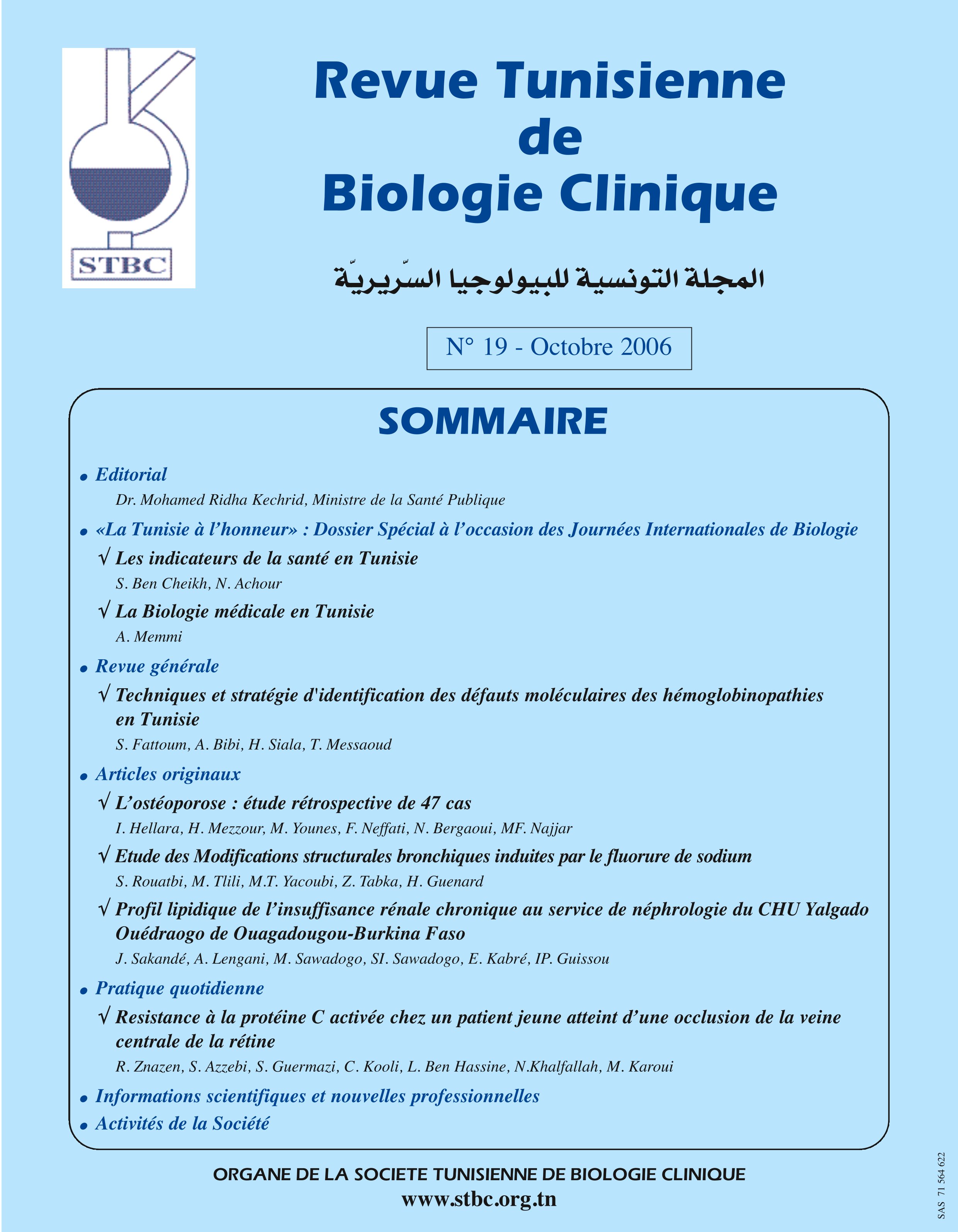Abstract
Osteoporosis is a chronic disease that currently represents a public health problem due to the increasing proportion of women affected, its impact on patients' quality of life, and the high cost of management. The aim of our study was to specify the clinical, radiological, biological signs, and therapeutic modalities of osteoporosis, emphasizing its risk factors. Anamnestic data were collected from patient records using a predefined form. This retrospective study included 47 cases of osteoporosis (7 men and 40 women, aged 1 to 85 years) collected in the rheumatology department of the CHU Fattouma Bourguiba in Monastir over the past nine years. Biological parameters studied (calcium, phosphorus, alkaline phosphatases) were analyzed in the Biochemistry-Toxicology laboratory using a multiparametric analyzer, and PTH was measured by electrochemiluminescence on the Elecsys 2010 analyzer. Bone mineral density measurement was performed using the DXA method. Our results highlighted the extent of osteoporosis and its painful and fracture-related complications, making it a genuine public health concern. All our patients were classified as osteoporotic in the absence of risk factor screening and early biological and radiological diagnosis by densitometry. Osteoporosis should be prevented from childhood through dietary measures, physical exercise, and early diagnosis with the introduction of new biological markers (osteocalcin, crosslaps, and crosslinks). The role of every healthcare practitioner (physician, pharmacist, etc.) in this prevention as a health educator is paramount.

This work is licensed under a Creative Commons Attribution 4.0 International License.
Copyright (c) 2006 Revue Tunisienne de BIOLOGIE CLINIQUE

